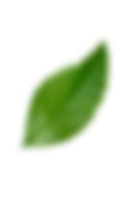Free Shipping Over £75 Orders
- 100% RECYCLEABLE PACKAGING HERBAL AND ORGANIC INGREDIENTS
Free Shipping Over £75 Orders
- 100% RECYCLEABLE PACKAGING HERBAL AND ORGANIC INGREDIENTS

A rather simple looking task that we all do almost every day in our lives: washing dishes by hand. What tips and trick could there be, right? Well, when it comes to washing dishes, many people see it as a mundane chore that is often rushed through. However, mastering the art of hand washing dishes can not only ensure clean and spotless dishes, but it can also be a therapeutic and mindful activity. So get ready to transform your dishwashing routine into a mindful and efficient task!
While dishwashing may seem like a simple task, it is crucial to understand the importance of proper dishwashing techniques. By ensuring that your dishes are thoroughly cleaned and sanitized, you can prevent the growth of harmful bacteria and potential cross-contamination.
Proper dishwashing also helps to maintain the longevity of your kitchenware. By carefully handling and cleaning your dishes, you can prevent scratches, stains, and other types of damage. This not only keeps your dishes looking pristine but also extends their lifespan, saving you money in the long run.
Considering many aspects, washing certain dishes by hand tends to have better results, as abrupt water can damage some products. However, it is crucial to note that the cleaning product you use also affects this process a lot. Safe dish washing products can improve this activity to a great extent.
First of all, using hypoallergenic and organic products can prove good for your health and the environment, as they’re not harmful to any living beings.
Secondly, they are the same quality as the ones that contain harsh chemicals. Just Green’s organic washing up liquid is a great choice for this, as it is hypoallergenic, non-toxic and vegan.
If you’d like to also add a natural product to your dishwasher too, you can check out the plant-based dishwasher tablets that also have the same qualities.
So whether you like washing dished by hand or dishwasher, use a product that doesn’t contain harsh chemicals for your and your loved ones’ health. Also, remember to not waste any water!
Before diving into the task of hand washing dishes, it is essential to create an organized and efficient workspace. By taking a few minutes to prepare, you can ensure that the dishwashing process goes smoothly and efficiently.
Start by clearing off your countertops and sink area. Remove any items that might obstruct your space or hinder your ability to clean. This includes dirty dishes, utensils, and any unnecessary clutter.
Next, gather all the necessary dishwashing tools and supplies. This typically includes a dish rack, dish soap, a sponge or scrub brush, and a drying towel. Having everything within reach will save you time and make the process much more streamlined.
Finally, check the temperature of your water. For effective dishwashing, it is recommended to use hot water. Don’t forget to test the temperature to ensure it’s comfortable but not scalding.1.Scrape off the excess food
Once you have set up your workspace, the next step in hand washing dishes is to scrape off any excess food from the dishes. Most dishwasher ads emphasize that you can load them with dishes that have excess or dried food on them, but most of the time they’re not thoroughly cleaned. So, scraping is an important step as it both helps prevent clogging your sink and ensures cleaner dishes.
Start by using a rubber spatula or a spoon to scrape off any large food particles into the trash or compost bin. Be thorough and remove any stubborn bits of food that may have dried on.
If you have dishes with stubborn, stuck-on food, you may need to soak them in warm, soapy water for a few minutes to loosen the debris. This will make it easier to remove when you start scrubbing.
After scraping off excess food, this step is rather simple: Fill you sink or a container you prefer with hot water. Be careful though! Water shouldn’t burn you.
You will be using the same water to not waste any water, but don’t worry. This will not make your dishes dirtier because you will rinse them later!
Using your organic products, wash the dished thoroughly, cleaning the nooks and crannies that might have dirt or excess food stuck. You can use a sponge of your choosing, but be mindful of the material of the dish, as some materials can be harmful after being damaged by sponges.
Rinse your dished thoroughly, while being mindful of the water. The best way to do this is to fill a bucket or a container of your choosing with a certain amount of water, and only use that water to rinse your dishes. Using the tap water, sometimes we get lost and use too much of it, so for a better environment and less bills, be mindful!
This step is usually skipped, and dishes are left to dry on their own. Now, if you don’t have much time left, you can let them air dry, but drying them yourself with a clean cloth may benefit you more, as the clean dishes can still collect dust and bacteria while drying, especially if you have pets.
Stay Informed About Us!



Main Menu
Cookies
We use cookies to personalise content and ads, to provide social media features and to analyse our traffic. We also share information about your use of our site with our social media, advertising and analytics partners who may combine it with other information that you’ve provided to them or that they’ve collected from your use of their services.